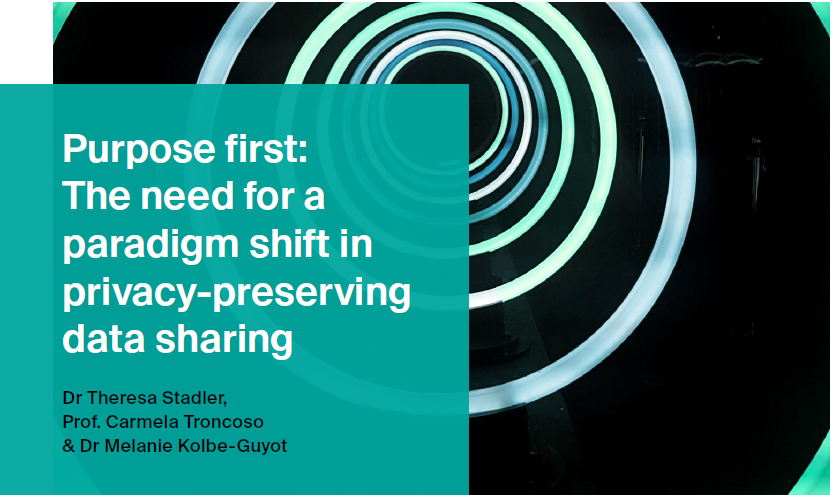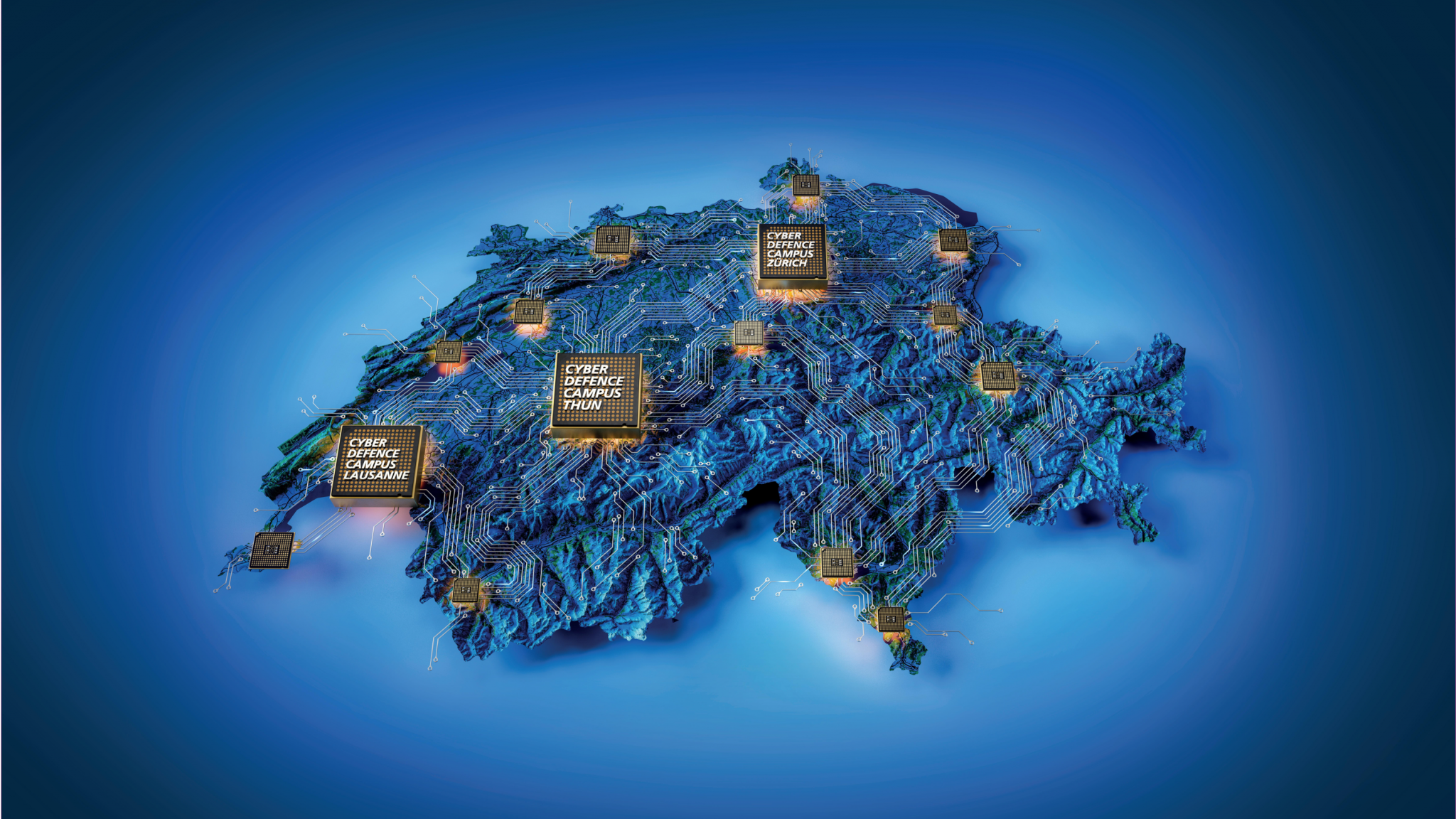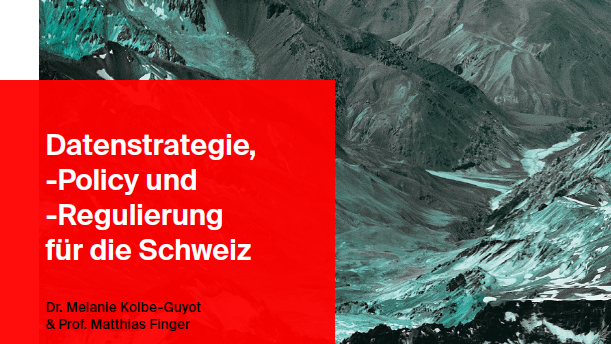EPFL’s IC School invites you to the 2019 edition of the IC Summer Research Institute (SuRI), held in Lausanne (EPFL, BC 420) on June 13-14. The conference brings together renowned researchers and experts from academia and industry who will present their latest research in cybersecurity, privacy, and cryptography. The event is open to everyone and attendance is free of charge. For more information and to register please click here…
This article highlights significant flaws within the proposed NO FAKES Act, whose repercussions would extend far beyond U.S. borders. I found it particularly insightful because of the parallels it draws between this bill and existing mechanisms for addressing copyright infringement, outlining how the deficiencies within the latter are likely to be mirrored in the former.
Driven by ethical concerns about using existing artwork to train gen AI models, an artist created his own model that produces output untrained on any data at all. What was interesting to me is that, in exploring whether gen AI could create original art, he also demonstrated a potential path to better understanding how such (…)

Images façon “studio Ghibli”, tendance Starter Pack. derrière leur aspect ludique, ces images générées par l’intelligence artificielle générative posent des questions environnementales très concrètes. Réponses avec Babak Falsafi, professeur ordinaire à la faculté d’Informatique et de Communications de l’EPFL, président et fondateur de l’Association suisse pour l’efficacité énergétique dans les centres de données (SDEA).
This article is interesting because it highlights the opportunities and challenges of personal data ownership. Although tools such as dWallet claim to empower users, they can encourage the poorest and least educated people to sell their data without understanding the risks, thereby widening the digital divide. True data empowerment means that everyone must have the (…)
That is a very nice attack on privacy-protection in the mobile browsers: even if you don’t allow any cookies and don’t consent on being tracked, you’re browsing behaviour is still tracked. The idea of communicating from the mobile browser to your locally installed app is technically very interesting, and seems to be difficult to avoid (…)
This atlas of algorithmic systems curated by AlgorithmWatch CH is a nonexhaustive yet revealing list of algorithms currently deployed in Switzerland, whether to ‘predict, recommend, affect or take decisions about human beings’ or to ‘generate content used by or on human beings.’ The atlas is really eye-opening for me – so many systems that we (…)
Agentic AI has only recently emerged, yet it is already being used to commit fraud. This trend is not new; historically, fraudsters have exploited new technologies to target unsuspecting users and weak security systems, as seen with the first instances of voice phishing during the rise of telephony in the early 20th-century. These challenges have (…)

This policy paper highlights the crucial trade-off between privacy and utility in data sharing and call for a shift from technology-centric solutions to purpose-driven policies. The paper formulates eight actionable recommendations to guide realistic, privacy-preserving data-sharing practices in Europe.

To promote research and education in cyber-defence, the EPFL and the Cyber-Defence (CYD) Campus have jointly launched the “CYD Fellowships – A Talent Program for Cyber-Defence Research.”
The 12th call for applications is now open, with a rolling call for Master Thesis Fellowship applications and Proof of Concept Fellowship applications, and with a deadline of 20 August 2025 (17:00 CEST) for Doctoral and Distinguished Postdoctoral Fellowship applications.

In this paper, the authors highlight the crucial trade-off between privacy and utility in data sharing and call for a shift from technology-centric solutions to purpose-driven policies. The paper formulates eight actionable recommendations to guide realistic, privacy-preserving data-sharing practices in Europe.
ENISA’s new vulnerability database is a significant development in the pursuit of European digital sovereignty. It reduces reliance on US-dominated resources and could lead to better alignment with EU regulations, such as the GDPR and the NIS2 Directive. However, key questions remain about coordination with existing global databases, disclosure policies, and the participation of non-EU (…)

Switzerland’s digital identity (eID) system is ready, and a public referendum on the new law is scheduled for 28th of September 2025. C4DT started working on the recently awarded Innosuisse grant to research privacy-preserving technologies for the eID. We’ll present our first findings, as well as the current Swiyu test environment during our upcoming hands-on (…)
‘I call it the ‘AI dilemma’: while AI may threaten many jobs, it also serves as an essential tool to mitigate its own impact by boosting re-skilling and upskilling initiatives. I appreciate this article because it demonstrates how agentic AI can be employed in lifelong learning systems to reduce skill gaps, which are in part (…)

Melanie Kolbe-Guyot und Matthias Finger diskutieren die Notwendigkeit einer umfassenden Datenpolitik für die Schweiz, um das Potenzial von Daten durch klare Regeln und Anreize zu nutzen und die Wettbewerbsfähigkeit langfristig zu sichern. Es formuliert 6 Handlungsempfehlungen für die Politik.

In diesem Paper diskutieren Melanie Kolbe-Guyot und Matthias Finger die Notwendigkeit einer umfassenden Datenpolitik für die Schweiz, um das Potenzial von Daten durch klare Regeln und Anreize zu nutzen und die Wettbewerbsfähigkeit langfristig zu sichern. Es formuliert 6 Handlungsempfehlungen für die Politik.
Don’t mess with Texas! This settlement, along with the $1.4 billion agreement Meta reached with Texas last year over privacy violations, will hopefully disincentivize companies from engaging in similar practices. While Google doesn’t admit to any wrongdoing with this settlement, it’s still a significant win for data privacy advocates.
Interested in this training? Reach out to us to discuss Teaser Step into the future of digital identity with our immersive training, “SWIYU Integration – Privacy-Preserving Solutions for the Swiss eID.”Tailored for engineers, this course provides a comprehensive exploration of the Swiss eID system, offering an in-depth understanding of its authentication protocols, security measures, and (…)
This article reveals how North Korean agents are finding jobs in IT by exploiting remote working opportunities and AI-powered interviews. This combination of espionage and “legitimate” job hunting creates a worrying new security challenge, as companies cannot verify who they are actually hiring. This sophisticated operation illustrates the evolution of cybersecurity threats, which are no (…)
I don’t mind if my AI keeps a memory of my inquiries during a given application session; in fact, it is more convenient if I work on something consecutively. However, long-term memory functions are very disconcerting. In the case of Meta, I am also troubled that it requires a Meta-associated account for its AI use, (…)

November 19th, 2025, 09h30-17h30, Starling Hotel, 1025 Saint-Sulpice Introduction As we enter the agentic era, AI agents are increasingly integrated into various aspects of modern life, performing tasks that range from personal assistance and financial management to complex decision-making in industries. These AI agents, driven by powerful algorithms, are transforming how we interact with technology (…)
Wednesday, June 3rd, 5th or 10th, 2025, 09h-13h30 (tbc), BC 410, EPFL Introduction The transition towards digital solutions in Swiss democratic processes, such as e-collecting of signatures for initiatives and referenda, presents both opportunities and challenges. With increasing concerns about fraud, privacy, and data security, there is a pressing need to develop a trustworthy and (…)

Interested in this theme? Looking to participate or collaborate on an initiative? The increasing prevalence of AI-powered systems and autonomous agents requires a shift in how we approach software development. It is critical to explore technologies, policies, and collaborations that enhance trust in software applications, particularly in an era where AI agents play an active (…)

The Blavatnik Interdisciplinary Cyber Research Center (ICRC) at Tel Aviv University is hosting its 15th annual Cyber Week Conference from June 23-26, 2025. Find out more here.







